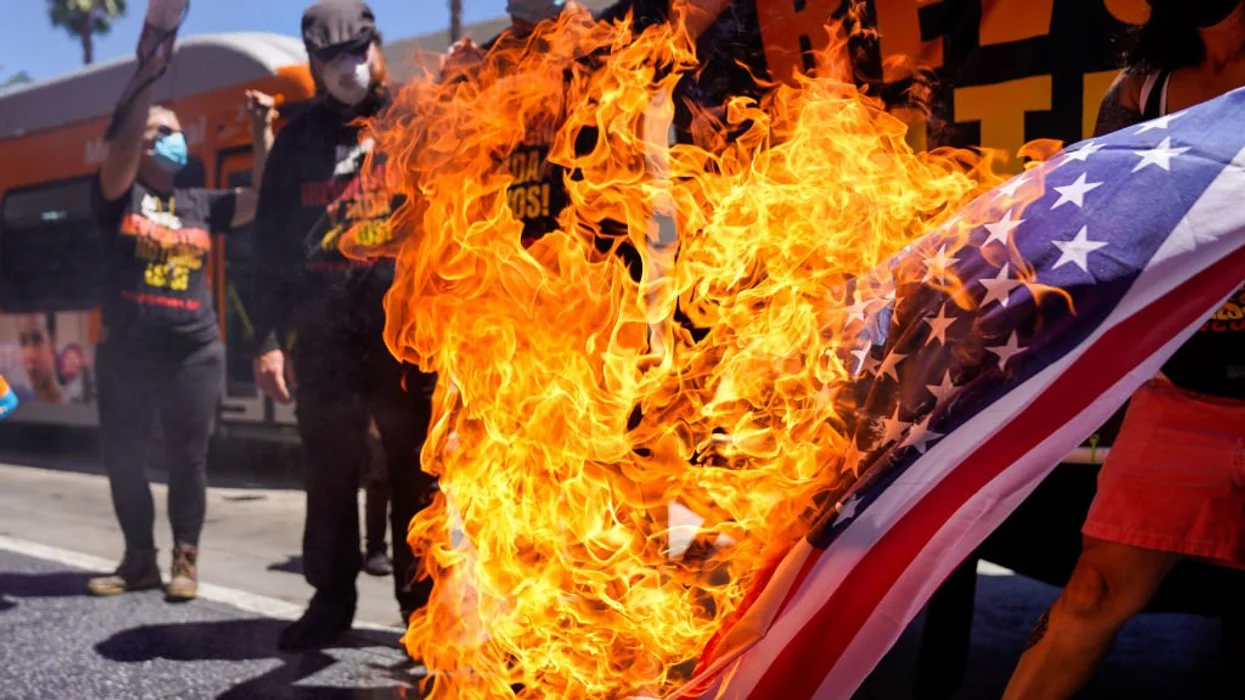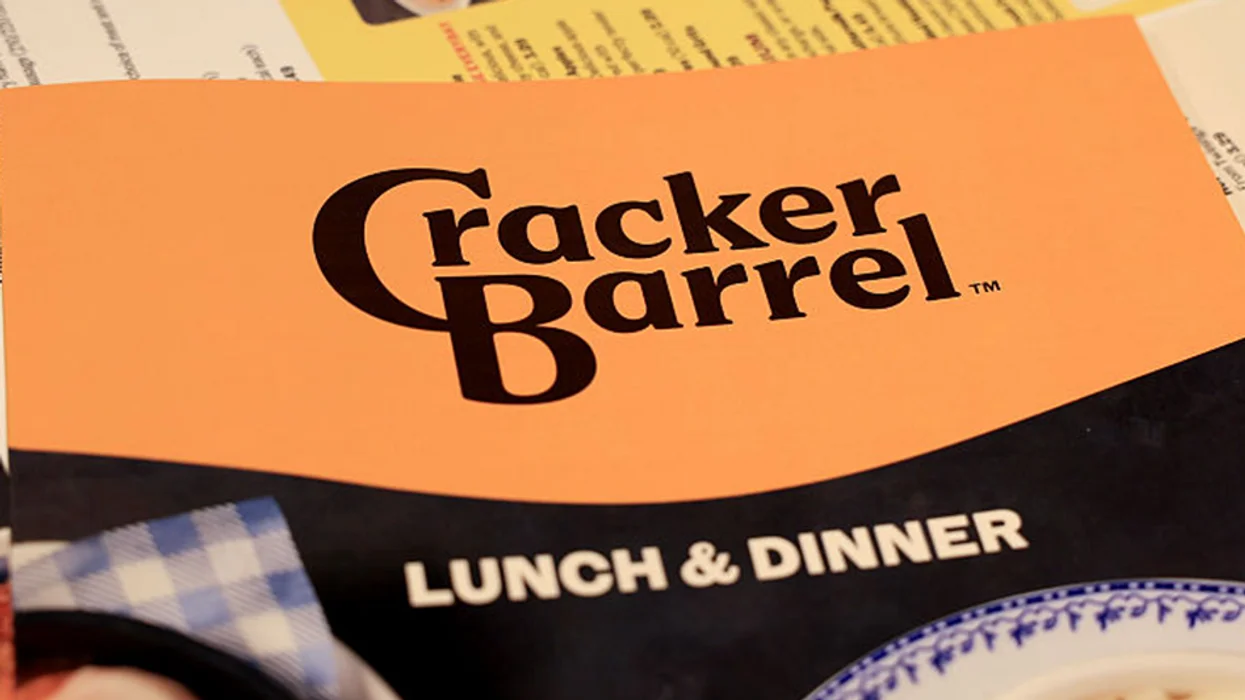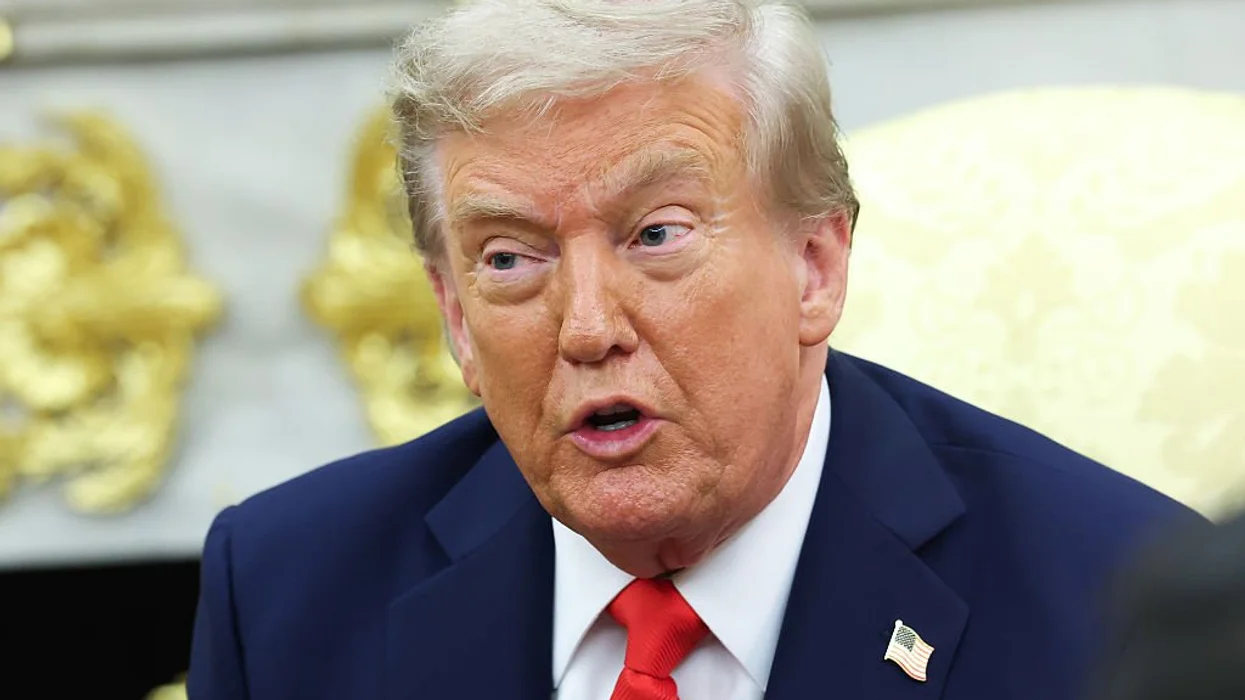
© 2025 Blaze Media LLC. All rights reserved.
...part of an intimidation campaign.

BEIRUT (The Blaze/AP) -- Syrian gunmen attacked a renowned anti-regime cartoonist early Thursday in Damascus and left him bleeding along the side of a road, human rights activists said.
Ali Ferzat, who is in his 60s, was hospitalized after passers-by found him "heavily beaten and physically abused," said Omar Idilbi, a spokesman for the Local Coordination Committees, an activist group that helps organize and track the 5-month-old uprising in Syria. The Guardian has more details on the violent attack:
In the early hours of Thursday, masked men seized Ferzat on a Damascus street and forced him in to a van. He was held for several hours and beaten before being dumped, bleeding, on the capital's Airport Road where he was found by passersby, activists said.Ferzat had become increasingly critical of the regime and its brutal crackdown. He recently appeared on al-Arabiya television and his drawings were avidly followed by Syrians looking for some light relief.
Idilbi said security forces carried out the attack, although Rami Abdul-Rahman, head of the London-based Syrian Observatory for Human Rights, said the identity of the attackers could not immediately be confirmed.
Syria has banned foreign journalists and restricted local coverage, making it difficult to confirm the details surrounding events like Ferzat's attack during a time of great upheaval in the country.
Ferzat has said he had great hopes for President Bashar Assad when he became president in 2000, but in recent years he has become a vehement critic of the regime, particularly as the military launches a brutal crackdown on the country's protest movement.
Ammar Abdulhamid, a US-based dissident and the son of the actor Mona Wasif, had the following to say about the capture and beating:
"Ferzat's arrest is part of an intimidation campaign by security forces who have increasing leeway. At this stage fame may be more of a danger than a protection because the regime does not want any prominent figure to come to the fore and provide a public face for the revolution."
The violence against Ferzat is symptomatic of the current climate in Syria. Human rights groups said Assad's forces have killed more than 2,000 people since the uprising against his autocratic rule erupted in mid-March, touched off by the wave of revolutions sweeping the Arab world.
Activists said at least 11 people were killed on Wednesday, most of them in the central city of Homs. Despite these occurrences, Assad has shrugged off international condemnation and calls for him to step down, insisting that armed gang and thugs are driving the violence, not true reform-seekers.
The crackdown has led to broad international condemnation and sanctions, although French President Nicolas Sarkozy on Wednesday ruled out intervening in Syria without international backing.
"As for Syria, the conditions for a military intervention are not in place ... France will not intervene without an international resolution. That's the basis," Sarkozy said during a news conference in Paris with Mahmoud Jibril, the head of Libya's opposition government.
"That doesn't mean that we can let the Syrian people get massacred by a regime that disqualifies itself from one day to the next," he said.
Also Wednesday, the European Union imposed sanctions against an elite unit of Iran's Revolutionary Guard, saying the Quds Force is providing equipment and other support to help Assad crush the revolt.
The sanctions broadened the international pressure against Syria by directly targeting its key ally Iran, which the U.S. and other nations have accused of aiding the crackdown.
The EU's official journal, which published the statement, said the Quds Force "has provided technical assistance, equipment and support to the Syrian security services to repress civilian protest movements."
Other new targets of the sanctions include several Syrian generals and close associates of Assad's younger brother, Maher, who is believed to be in command of much of the crackdown. Hassan Turkmani, a former defense minister and special envoy for Bashar Assad, also was named.
The EU blacklist on Syria now contains 50 people and nine entities who face asset freezes and travel bans as punishment for one of the deadliest government crackdowns of the Arab Spring. Syria already is under broad sanctions from the U.S. and European countries, but calls for stricter measures have been on the rise.
Despite the harsh words, the Syrian crackdown continued. Tanks stormed the eastern city of Deir el-Zour and made sweeping arrests there Wednesday, according to Syrian activists. Deir el-Zour is an oil-rich but impoverished region known for its well-armed clans and tribes whose ties extend across eastern Syria and into Iraq.
On Tuesday, European nations and the U.S. circulated a draft U.N. Security Council resolution seeking an arms embargo and other sanctions.
While widespread witness accounts and amateur video footage describe a brutal crackdown by security forces, Syria's state-run news agency says security forces are the real victims of gunmen and extremists.
Assad has exploited fears of chaos in Syria, with the regime portraying him as the only man who can guarantee peace in a country with a potentially volatile mix of religious groups.
The opposition, however, says the protest movement is free of sectarian overtones and is simply demanding freedom and democracy. The opposition took steps toward forming a national council Tuesday, but serious divisions have prevented them from presenting a unified front.
Want to leave a tip?
We answer to you. Help keep our content free of advertisers and big tech censorship by leaving a tip today.
Want to join the conversation?
Already a subscriber?
Billy Hallowell is a digital TV host and interviewer for Faithwire and CBN News and the co-host of CBN’s "Quick Start Podcast."
Billy Hallowell
Billy Hallowell is a digital TV host and interviewer for Faithwire and CBN News and the co-host of CBN’s "Quick Start Podcast."
more stories
Sign up for the Blaze newsletter
By signing up, you agree to our Privacy Policy and Terms of Use, and agree to receive content that may sometimes include advertisements. You may opt out at any time.
Related Content
© 2025 Blaze Media LLC. All rights reserved.
Get the stories that matter most delivered directly to your inbox.
By signing up, you agree to our Privacy Policy and Terms of Use, and agree to receive content that may sometimes include advertisements. You may opt out at any time.





